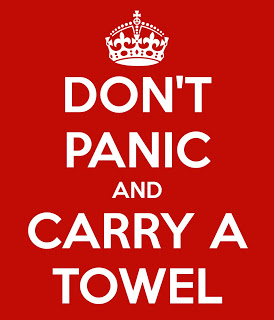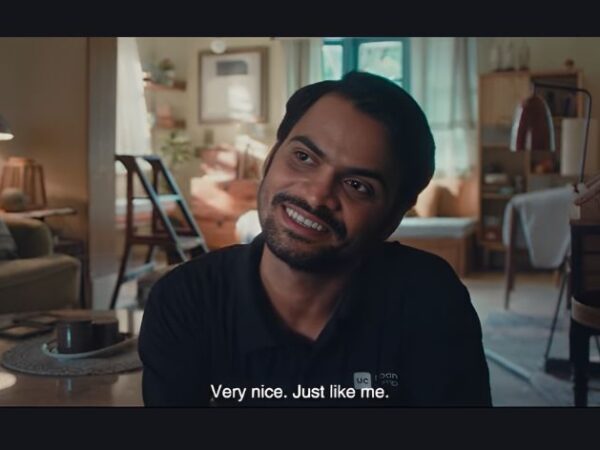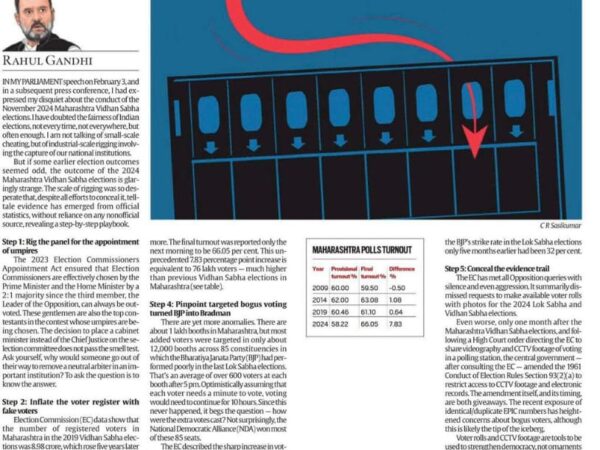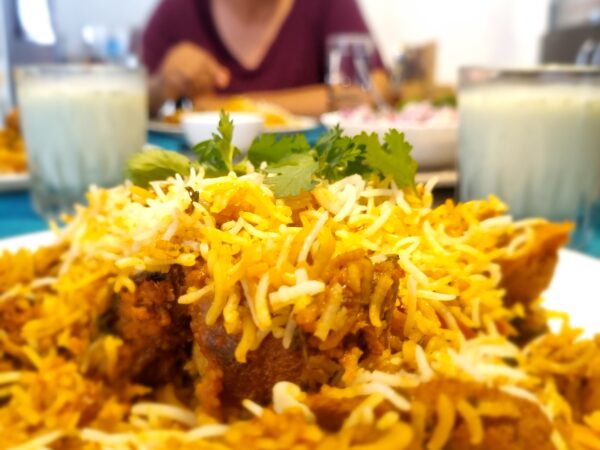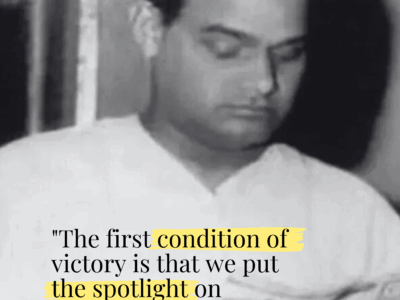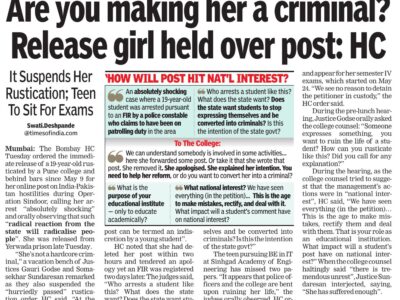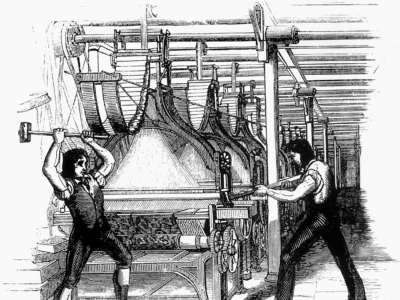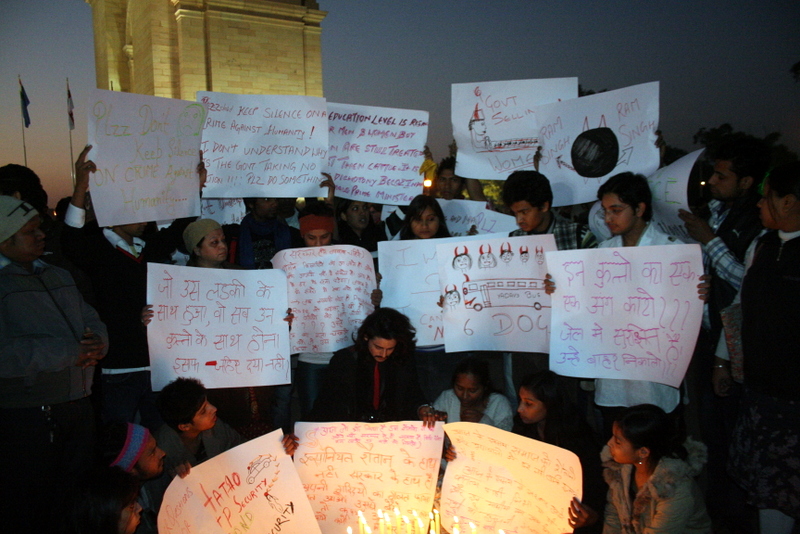
I had decided not to comment on the current goings-on in Delhi, but somehow, I got into a discussion with someone and realised I had to get out there and say my say.
First, let me start with the most obvious: what happened to the lady on that bus was gruesome. I will never be able to understand it even partially or sympathise enough.
Secondly, her rapists deserve to pay for what they have done. They must get exemplary punishment to the fullest extent possible within our legal framework.
Thirdly, the government must put its head together and come out with a comprehensive plan to curb crimes against women, whether from the legislative perspective or the policing. The law must be written in a manner to reflect the 21st-century requirements, and the government officials who interface with the general public must be sensitised to it and constantly monitored.
Fourthly, the gathering of young people (as it was on the first day) should have been addressed and placated by some senior person in the government and should not have been allowed to continue beyond that. Instead, we had the administration patting each other’s backs!
And lastly, we must look at our education, our media, our cultural expressions, and public demonstrations of feelings and emotions, to start a long-term and permanent repair as vaccination against such incidents, not just in public, or in our homes, but in our minds too.
But, and this is something I am ready and willing to take a lot of flak for, what is happening in Delhi saddens and scares me, and I fear we might be barrelling uncontrollably down the wrong slope, with no brakes and no one at the controls.
The reasons are not very hard to find for someone who cares to look.
The ‘protest’ seems to be just an opportunity for hooligans and rioters to make merry. And by the way, these are the same hooligans who treat women as objects to be possessed, used and fought over. It is a matter of time before stories of eve-teasing start emanating from the ‘protests’ (later edit: this has already started!).
OK, so maybe it started off honestly and deteriorated along the way. But here is another question: was the initial protest also as peaceful and democratic as it is made out in the media? I think not. What it was, was a lynch mob. The kind seen in villages in interior India, where they burn women accused of being witches, chop the limbs of people accused to be thieves, cut off ears and noses of people accused to have committed adultery (or couples who have eloped so as to marry against their parent’s wishes), gouge out eyes of lower-caste people accused of looking at high-caste women, and usually come together in a mob to commit these crimes, as well as to hide it in an unwritten blanket of Omerta.
These are the kind of mobs that strip and parade helpless women in our villages. These are the mobs who pull people out of their houses and march them to the police station insisting that they be charged with inciting the very same mob because of a Facebook update. Yes, those kinds of mobs. That is what we are seeing in Delhi.
And added to these mobs are silly online petitions insisting that the rapists be hanged and hanged immediately. Once again, I strongly disagree.
In fact, when I said something about due course and process of law, I was immediately attacked with, “Oh, she is not your sister” or some such argument. I completely understand this. Yes, if she were my sister, I would be seething with rage and revenge. But even then, I would want the law to take its course and work inside what is legally permissible (and my family and I have proved it in our own lives when we were fighting the administration).
Why? Because if we parade the rapists publicly, stone them, and hang them in the square, there will be nothing segregating them and us. We will become one with the rapists and murderers. We will satisfy only the inner animal of the mob. And once we do this to one ‘criminal’, there is no stopping the mob. We go down a very slippery slope from there.
There is some kind of sanity in what seems an excruciatingly slow and sometimes impotent justice system in India. The one thing it deems to do (I cannot claim it manages it every time but it sure aspires to, which is more than I can say about mob justice) is to offer a fair hearing using standardised penal codes that are common to all. No one is assumed to be guilty unless proven so, and no one is denied a hearing.
In fact, while these same people were talking of hanging Kasab (one of the perpetrators of the 26/11 carnage) publicly and quickly and mocking the government on how soft it is on the issue, I used to be proud of pointing the same out to non-Indians as an example of democracy and the rule of law in our country. The killers of Mahatma Gandhi, Indira, Rajiv, Gen Vaidya, all got a fair trial, and all were assumed innocent until proved guilty. Even the Bombay bombers of 1992, the dreaded mafia bosses who were stupid enough to get caught, the terrorists who attacked our Parliament, or the 26/11 shooters, all got a just trial, and we should be proud of that.
There are people, even our parliamentarians (from what was reported), who claim that the rapists should not be allowed lawyers or any legal representation. It is a preposterous suggestion in our democracy! This is, as I said, a slippery slope and such lynch mob trials and executions are just the thin end of the wedge. We should never allow such lawlessness to take over the civilised society we call ourselves. If you deny someone a fair chance, you will have no right to expect the same for yourself or your loved ones.
Moreover, in this instance, the media, for its part, has been ridiculously over the top and actually fomenting some trouble, if I may say so. The breathlessness in the reportage, the quick sound bites of random (but obviously well-chosen) people, the exaggeration of certain claims and the understating of some others are all a game. Neither the protesters nor the authorities realise that the media will report (and report in a way) what gets them the best TRPs. They forget that the media lives by the dictum, “If it bleeds, it leads.” Tomorrow, they will find another story to be breathless about, and that is that.
Of course, this is not to say that no protester, politician, or policeman understands this. There are some pretty shrewd people out there who cultivate the media and manipulate them in a classic double cross, with sometimes the media not knowing till it’s done, and other times, the media playing along as if naive. Any which way, what you see on TV or read in the news is at best a filtered, and at worst, a doctored version of the truth.
Unfortunately, after seeing so many ‘revolutions’ happening around the world (reported by the same media), innocent, well-meaning people get caught up and pick up the half-truths and lies being spewed out, magnify them, and post them on social networks. Other innocent (and some not-so-innocent) people pick these up and further embellish them in a ghastly game of Chinese whispers until there is just so much bullsh** out there that even the truth sounds unbelievable.
What people are forgetting is that the whole culture of the North, specifically the NCR (National Capital Region, or Delhi, as it is known), is still languishing about a century behind today. This is the elephant in the room nobody has the guts to talk about, for fear of being labelled parochial or pandering to regional biases or, in the worst case, being racist or anti-national.
In this region, crimes against women happen mostly not because of a failure of law and order but because of the way people are constructed. No amount of policing will stop a Delhiite from molesting a woman on a bus. I know too many people who will pounce on me in public for making such blatant generalisations and racist allegations but will agree with me in private. The smallest of incidents highlights the rowdy culture of the capital city. Scratched someone’s car? Guns are pulled. Refused someone a drink? Shots are fired. Objected to lewd comments? Fistfights happen. Physical fights are considered part of normal life in Delhi.
Why I say that is when you compare it to any other metro around the world, it stands out for this one particular peculiarity. The most normal conversation will contain abuses; the slightest of slights will result in confrontation and raised voices, and, compounded with alcohol or other intoxicants, you have a lethal mix. Yes, the lax policing does not help the cause, but my case is that Delhi Police is as efficient (or otherwise), as well (or poorly) staffed, as trained, as equipped, as corrupt, as lazy, as sycophantic as any other police in any other major city in India. The only thing different is the people they are policing.
While this could be a result of history, where this region had to bear the brunt of every invading army, or if it is a result of the superiority-complex-driven aggressive Mughal culture, which is so steeped in these regions (while not so much down South), or if it has to do with continued prosperity throughout recent history (due to the fertile rivers), or with being more populous (in density) than the rest of India, or with the disproportionate representation in the Indian Parliament, or if it stems from the well-known ‘capital city’ complex where people who stay in the capitals historically have had a mistaken feeling that they ‘rule’ the nation (and go on to impose their language, culture, sensibilities, food habits, clothes, religious beliefs, etc., on others), is not something I can analyse—anthropology or sociology not being my specialities. But I am sure the reasons lie somewhere there.
I have great respect for my U.Pite, Sikh, and Jat friends, but I must say that from my personal experience, and what I have heard, read, and seen, the problem with Delhi is not the policing. It is the culture, or frankly, the lack of it. And remember, the policemen (and women) also come from the same culture, don’t they? Without extensive training and monitoring, how can you expect them to be more sensitive, understanding, or fair than the average person in the Delhi street?
Do I mean that this does not happen in other parts of India? Not at all. I have known cases in Mumbai that have got my hair raised on end and my fists curling. I have witnessed scenes on Pune roads that would make any Indian hang his or her head in shame. What I mean is that generally, if I were to tell someone that my wife got molested in public transport while others just looked on, and then was ill-treated by the police and threatened by the molester, chances are the person will guess it happened in Delhi. Yes, I know it happens everywhere, and I admitted it as such. But honestly, run this experiment with someone who has stayed in Delhi as well as, say, Bangalore. If you do that with 10 people, I would not be surprised if 8 out of them guessed the city as Delhi.
I can just feel the righteous indignation swelling right now in several of my very articulate friends who shall spare no word in the OED to tear me and my reasoning apart. But then, someone had to make this argument, and I chose to. Having lived in several places in India and abroad, from my personal experience, if my daughter had to choose a city to settle in India, Delhi would be the last choice, if at all.
For those who shall accuse me of bias, let me make some declarations: I am very much in love with and married to a woman who is half U.Pite and half Nepali. My best friend in college was from Agra. I am absolutely in love with Mughlai cuisine. I prefer to wear the churidar-kurta than the mundu when asked to come dressed ‘traditionally’ to any party. Some of the best years of my life have been spent in the Air Force camp in Palam. And needless to say, the formative years of my life were spent in military cantonments, where everyone is a North Indian, regardless of where they actually come from! So, I have no prejudices against people from the northern states, and those who know me, and my extremely strong views on the sons-of-soil Marathi manoos movement (I abhor it, just for the record), will agree that I speak not out of a natural-born bias but out of real concern and experience.
What is my solution? I don’t have a panacea, nor am I qualified enough to offer one or powerful enough to implement it. In any case, the solution, like the problem, is not mine alone. Also, this applies to all of us—rich or poor, North or South, East or West, educated or illiterate, young or old. The solution is to change ourselves—firstly, to introspect, then to act.
We need to introspect about our constant reinforcement of gender roles: ‘Don’t behave like a girl’ to a sensitive boy who cries, or ‘Don’t behave like a man’ to a girl who laughs freely.
We need to introspect about our media that shows women in a certain light, in certain roles, and in certain situations, and men in others. About our movies, where there seems to be no distinction whatsoever between the behaviour of the hero and the villain as far as treatment of the heroine is concerned, except that the hero is probably better-looking. And about our approach to education, even in our most basic primary textbooks: Why does ‘Ram’ always have to do physical tasks while ‘Sita’ does menial? Why does the mother always cook, while the father reads a newspaper? Why does the boy always play cricket, while the girl helps in the kitchen? Why is the farmer always a man and the teacher always a woman?
We need to introspect about our myths, our stories, our culture, our traditions and rituals. Why does the bride always have to touch the groom’s feet? Why is the woman considered ‘paraya dhan’ (someone else’s property)? Why is the son, the inheritor of the family name, wealth, property, and responsibility, while the daughter is sent away as soon as she attains adulthood?
We need to introspect about our day-to-day dealings and behaviour. Why do we expect our daughters to come back home before dark but not our sons? Why do we question our girls about their friends, their dress, their calls and messages, but turn a blind eye when it comes to boys?
We need to introspect about our celebrations, our festivals, our prayers. Why do we pray to goddesses for wealth, prosperity, and knowledge, but treat our women as liabilities? Why do we call the Earth our mother, yet do not think twice before ripping her apart for our greed? Why do we celebrate what we call the ‘festival of colours’ but use it as a pretext for groping women in public? Why do all our festivals either place a woman under the man’s feet, dependent on his largesse (and life), or on a pedestal, too far for any real woman to reach.
And, we need to introspect about our politics and governance. Why is there a token ‘women’s quota’ in Parliament but no meaningful attempt to include them in leadership and decision-making (have you seen how many official candidates from the very parties that champion women’s issues are women)? Why are women in politics either relegated to being second-class citizens or vilified if they are ambitious? Why are women voters still wooed with promises of free gas cylinders and sewing machines, but not safety, respect, equality, or employment?
But all that apart, we must realise that a child will grow into the kind of man or woman that they see and experience what their parents and relatives, the society around them, and their neighbours are, and not what you say or command.
My own treatment of women is vastly due to how I saw my father treating women (and especially my mother) in my childhood, and not so much by what I was taught or saw in the media. It is also moulded by how my mother treated my father. Fortunately for me, my mother was a tough Marathi mulgi from Pune and took no shit, while my dad was a young Air Force officer who was always a gentleman. So, it has moulded me, it has made me, and it reflects in my behaviour with other people.
Is there a case to be made for all of us to start behaving differently with the other gender in order to change how future generations will behave? I mean, if children today see men being respectful to women (without the typically Indian hypocrisy of ‘mother,’ or ‘daughter,’ or ‘sister,’ or ‘wife,’ and no other options) and women standing up for themselves, maybe in a generation or two, we can see the change. What say?
Maybe it is time for men to stop calling other women ‘chicks’ and for women to refrain from referring to other women as ‘sluts.’ Maybe it is time to treat our own relatives, friends, and people who come in contact with us with respect, without reference to their gender. Maybe it is time not just to tell children that all humans need to be treated equally kindly but also to actually practice what we preach. Maybe it is time to start inside ourselves rather than look for a solution without.
I know this blog post reads more like a ‘stream-of-consciousness’ than a structured write-up, but there are some things that one must say, and say in as raw a form as they appear to a pure heart. Maybe I will revise this post on some thinking. Maybe I shall not upload it at all! But again, maybe I will!
(Later edit: I had discarded this post as too controversial and open to accusations, but as events unfolded in Delhi, I decided that this was the best time for my voice to be added to the cacophony. Hopefully, someone will hear it.)

